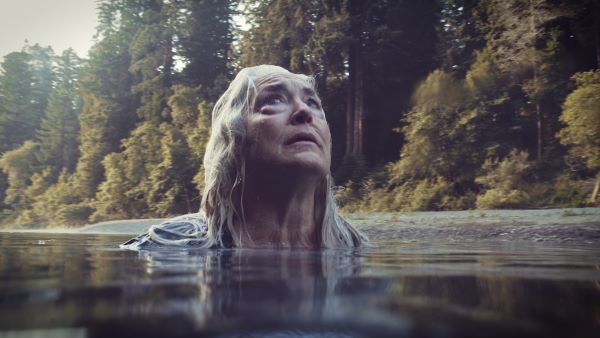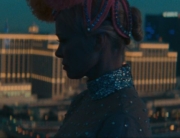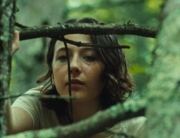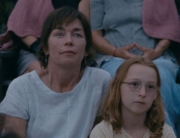
In his 2014 interview with Marc Maron, Paul Thomas Anderson repeatedly cites “the loss of a certain kind of innocence” as a compelling premise for a story. One can certainly see this in his own filmography. Boogie Nights, to name one film, memorably deals with the transition from film to videotape and its effect on the porn industry.
Freeland, set in the present day, features Devi (Krisha Fairchild), a longtime breeder of marijuana strains who has built herself a remote home and business in Northern California where she keeps a small crew employed for the growing season. Both the dialogue and some nostalgic sequences infer that she is a relic of the ’60s. However, changes are to come. Now that marijuana has been legalized, capitalism has taken over the industry, governmental regulations have closed in on her, and she begins to lose her ground.
While there are, in brief summary, some familiar staples (an old flame who talks about the good old days and a preponderance of foreboding signs), this film is given resonance by the strength of its mood and imagery and the naturalism of its performances. While it is true to say that the movie contains gorgeous shots of the natural world, saying so does not do much to convey their power. With photography that emphasizes the overpowering grandeur of mountains, forests, and trees, directors Mario Furloni and Kate McLean create the sense that this part of the world is, as of yet, untouched and consequently a privilege to inhabit. The soundscape is similarly rich.
Fairchild’s performance is strong and understated. Devi is stoic, always ready for a joke, loyal, yet slowly coming undone by the pressures that surround her, and Fairchild conveys these changes with seemingly effortless power. The other performances are strong as well. The ensemble has an easy camaraderie, intimacy, and a shared history, at which Devi is the center. Reminiscences of times gone by (the ’60s) carry more resonance than usual in a film with these strengths.
Times always must change, and this is easier for some than for others, but in Freeland, with its emphasis on the natural world, and on the contrast between Devi’s livelihood and encroaching capitalism, these changes have more fascinating implications. Here, it is not only a certain kind of innocence that is lost but how some alternative lifestyles—outside of rampant capitalism—may be doomed. In the third act, certain events of the plot may feel somewhat forced and rushed. Nevertheless, Freeland strikes the viewer as a stark, moving study of character and a vanishing way of life.






Leave A Comment